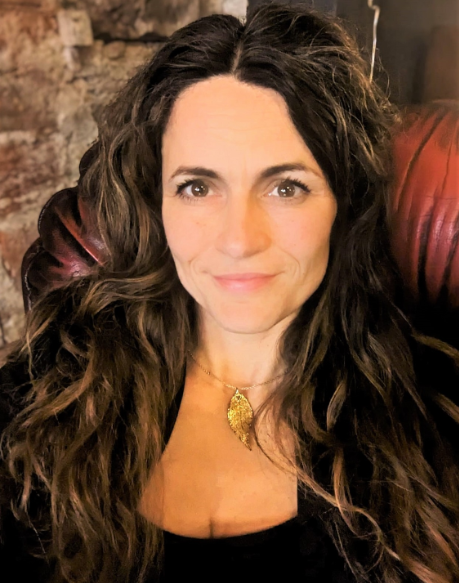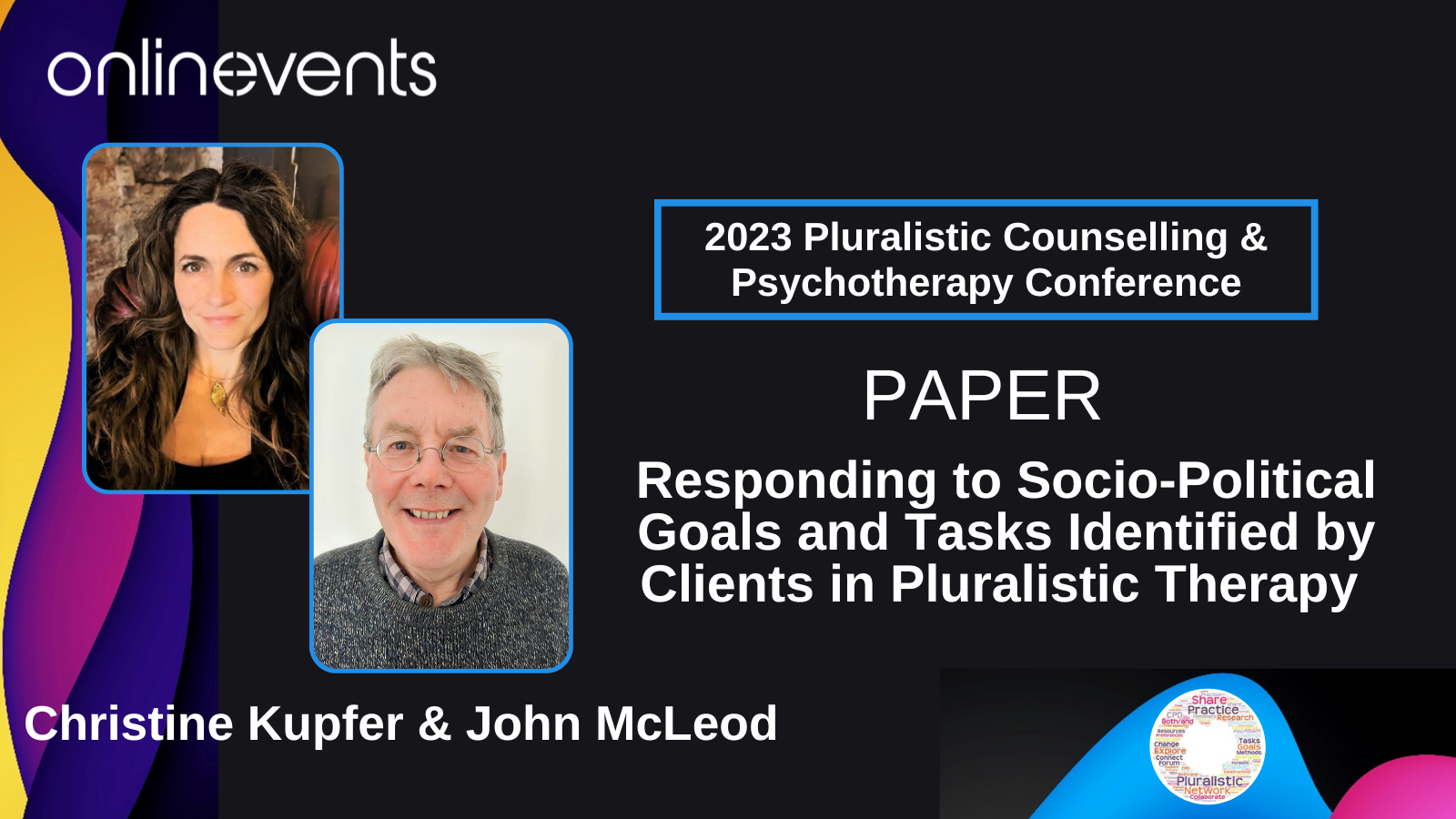An emerging priority within counselling and psychotherapy theory, practice and research has been a growing recognition that therapy needs to do more to play its part in addressing critical social issues such as racism/colonialism, the climate crisis, and gender violence. On the whole, mainstream therapy approaches tend to conceptualise the individual in terms of psychological processes, and evaluate outcomes in terms of symptom change. By contrast, at least in principle, a pluralistic framework for practice offers a space in which socio-political concerns can be explored, and engagement in political action and participation can be considered as a possible outcome. However, some practitioners lack confidence around knowing how best to respond to socio-political issues presented by clients. The first part of this presentation offers an overview of research into strategies used by counsellors and psychotherapists around engaging with socio-political goals and tasks.
The second part of the presentation looks at how these strategies can be incorporated into pluralistic practice, for example in relation to preparation for therapy, agreeing goals, collaborative case formulation, and activating cultural resources. A key aim of the presentation is to facilitate discussion: the closing section will focus on group discussion in which participants are invited to share their responses to what they have heard, ask questions, and collectively explore ways that research and training might enable a pluralistic approach to socio-political aspects of counselling and psychotherapy to be further developed.
Course Content
Presenter

Christine Kupfer is a lecturer in Counselling & Psychotherapy at the University of Abertay, Scotland, and works as a pluralistic therapist (MBACP). Her background and degrees (Masters, PhD) are in counselling, social and medical anthropology, education sciences, and psychology. Her research projects include a study on children’s mental health in India, a citizen science project on depression, ethnographic work with Ayurveda patients to understand their conceptualisations of health and healing, research on Rabindranath Tagore, and an ongoing project on the “Dark Side of Meditation”. She has published a monograph and many articles and is currently co-authoring a book titled Pluralistic Therapy: 100 Key Points and Techniques.

John McLeod is Visiting Professor of Counselling at the Institute for Integrative Counselling and Psychotherapy, Dublin, and Emeritus Professor, Abertay University. He has been closely involved in the development of pluralistic therapy, as well as publishing widely on a wide range of aspects of counselling and psychotherapy research and practice. He lives in Dundee, Scotland.


